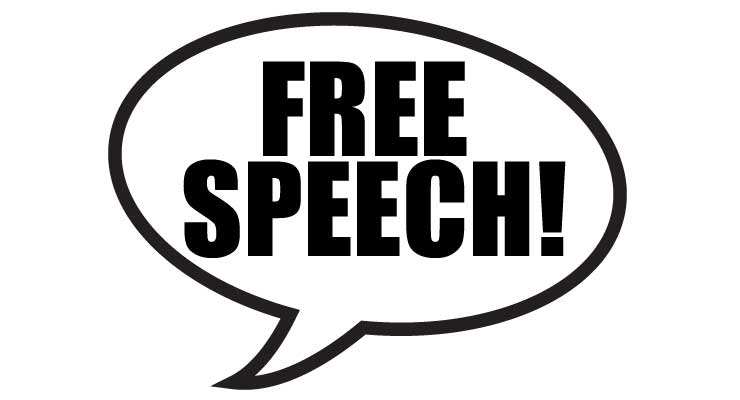
From Voice Of America
In the busy streets of Yangon, access to communication appears to be expanding as mobile phone users can be spotted making calls, sending messages and reading news stories from the Internet.
But the promises of an open society that helped put the National League for Democracy in power have become a distant dream for many who dare to speak out.
In a nondescript third floor office near the city center, a band of activists and researchers are busy monitoring the clampdown on free speech by the same government that safeguarded free speech just a few short years ago, following the 2016 election victory.
Poet Maung Saung Kha, who was the first person jailed under the controversial Article 66(d) of the Telecommunications law for defamation, formed Athan, an activist group monitoring peaceful critics and journalists who have been prosecuted using the country’s repressive laws.
The 27-year-old activist published a poem on his Face Book page in 2015 which included a line saying he had a tattoo of the Myanmar president on his penis, which resulted in a six-month jail term.
“There were already many rules and laws that could be used to repress the people, but instead of getting rid of them the current government is continuing to use the laws just like the former government to protect themselves from criticisms,” said Saung Kha.
“We can see that freedom of speech in Myanmar is getting worse now. The most obvious sign is that there are more reporters detained and imprisoned under this government,” he added.
Repeated calls by VOA to Myanmar government officials for comment on this story went unanswered.
New laws needed?
But supporters of Aung San Suu Kyi say that constitutional amendments will be needed to insure better protection for citizens.
Former political prisoner U Shell – who spent 14 years behind bars following the 1988 student uprising – says the process could take some more time.
“Currently the Home Affairs Ministry is the main element, which has full power to control every aspect of the country. Home Ministry is the driving force to govern and is controlled by the military,” Shell said.
According to the 2008 constitution, the Home Affairs, Defense, and Border Affairs ministries must be headed by serving military men.
“Key posts of all departments are the old men and they still support to military, but not support to NLD and its government,” said former political prisoner Linn Thant, who now lives in exile working as a Myanmar analyst in the Czech Republic.
“If [Aung San Suu Kyi], its party and hybrid government carry out the local administrative departments to be under the control of civilian elected president, the situation about freedom of speech will be better, Thant added.
While a clampdown on free speech and peaceful assembly is being used increasingly, the use of hate rhetoric through social media is also rising, often through military-connected media groups.
“The military uses social media to spread hate speech in line with their political agenda.Particularly on delicate issues like religion from both anti and pro groups, which create more unnecessary problems.That is why Article 66 (D) is necessary for them,” said Shell.
However, critics point out that prosecutions under one of the most commonly used laws, Section 66(D) of the Telecommunications Act, has to be approved by the Ministry of Transport and Communications, which is run by an NLD appointee.
“The number of those cases that have been approved that are abusive, absurd cases involving criticism that should never be the subject of criminal penalties is very high so clearly there is some control there that is not being exercised in order to protect freedom of press and freedom of speech in the country,” said Human Rights Watch legal adviser Linda Lakhdhir.
The rights group released a report earlier this month (Dashed Hopes: The Criminalization of Peaceful Expression in Myanmar) showing a marked increase in the prosecution of activists and journalists using an “overly broad, vague, and abusive laws” to prosecute peaceful speech and assembly, according to the report.
While international development expands, rights groups say foreign businesses should be wary.
“If you’re a business considering investing in a country where you could go to jail for raising issues about corruption or questions about mismanagement in the local government where your investment is, you should really be thinking twice about whether or not that’s a country where you should be putting your money because that’s a risky investment,” said Lakhdhir.
As Myanmar’s 2020 election draws closer, observers are questioning whether it can be free and fair without allowing full freedom of speech and expression.
“We are concerned that many of the ethnic groups do not feel that they are not being properly included , are not being consulted and are being marginalized, says Lakhdhir.
“Those who speak out against that, such as the youth that were protesting in Karenni state in recent weeks, are arrested are prosecuted, [and] are sometimes met with force by the police.”
Leave a Reply